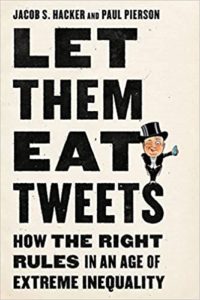Predicting election outcomes is always risky (for example, the People’s Action Party could lose the current election in Singapore), but life involves taking some risks. So I’m going to predict that Trump is going to lose in November, and lose badly*. He is far behind in the polls, substantially further than in 2016. More relevantly perhaps, the resurgence of the pandemic in Arizona, Florida and Texas has ended any chance that the economy will be successfully reopened and the pandemic clearly under control by November, not to mention giving the citizens of those states very personal reasons to vote against him.
What will happen to Trumpism after Trump’s defeat, in the US and globally? Here are some very disorganised thoughts.
A big part of Trump’s appeal is that he is a winner, and a big part of Trumpist mythology comes from wins against the odds, as with Brexit and Johnson and, more periphally, with the re-election of the Morrison government in Australia (which had the good sense to dump most of its ideology for the duration of the crisis, but is now returning to its roots). With that gone, Trump’s support will be much weakened So, the stage will be set for a fight in which the hard neoliberals who controlled the party before Trump attempt to reassert themselves, breaking with Trump’s explicit racism while still trying to keep the Repubs white voting base behind them.
On the other hand, Trump has lots of supporters who will refuse to accept the reality of a defeat (not enough, I think, and particularly not enough in positions of power, for him to stop the election or overturn its result). And there are more competent Trumpists, in the mould of Viktor Orban, keen to push an ethnonationlist, racist and authoritarian policy program without Trump’s clownish demagoguery.
Internationally, a defeat for Trump probably won’t make much difference to the ethnonationalist voting base of the Trumpist right. That base has always been there, ready to turn out whenever some other group can be identified as the enemy. But it will, I think, have a significant effect on the right wing of the political class. Some of them will find themselves outside the bounds of legitimate discussion (this is already happening in a small way in Australia), while others will engage in some quick reinvention.
The big question is whether hard neoliberalism can recover. On the one hand, the financial sector still has huge economic power, which usually translates into political power. And the common-sense economics of the Swabian housewife still retains its grip on many. On the other hand, just about everything that is identified with hard neoliberalism (globalisation of trade and financial flows, the hypertrophic growth of the financial sector, trickle-down economics and more) is massively unpopular. That’s particularly true of those under 40, who never experienced the illusory prosperity of the 1990s, or the crises of the 1970s (minor by comparison with the last decade, but a massive shock to expectations conditioned by the postwar boom).
The best hope for the US right is that Biden and the Democrats are unable to fix the catastrophic mess they will inherit. More on this soon, perhaps.
- I meant to have a footnote about the possibility of Trump rejecting the election outcome, but covered it with a parenthetical statement.
